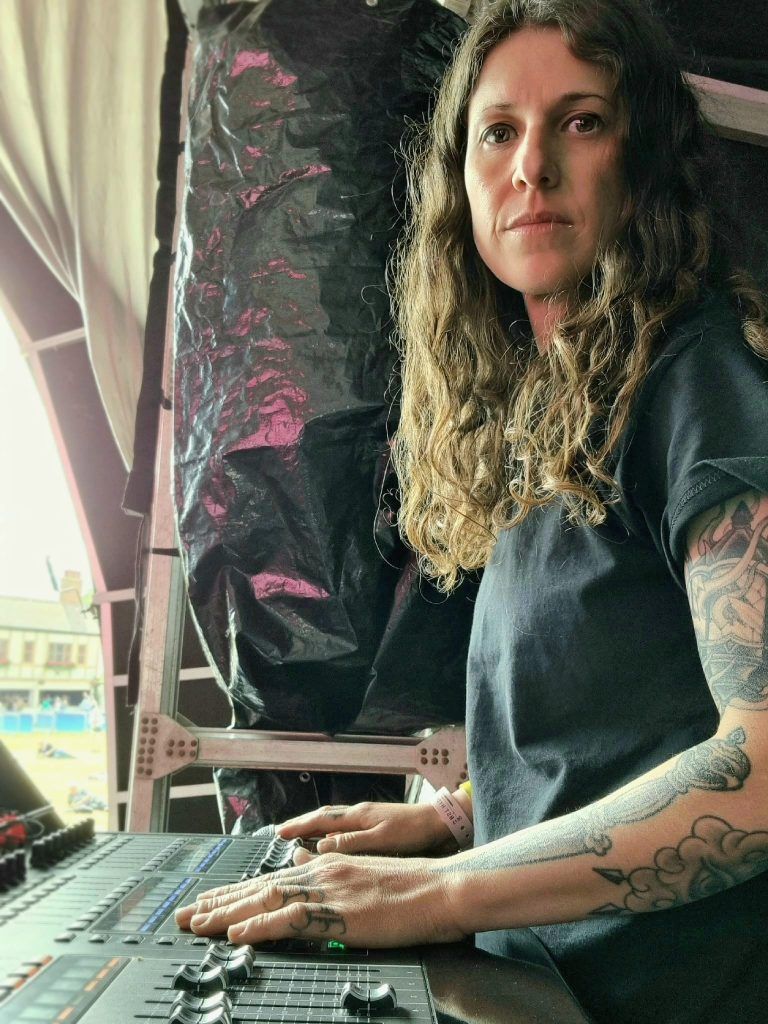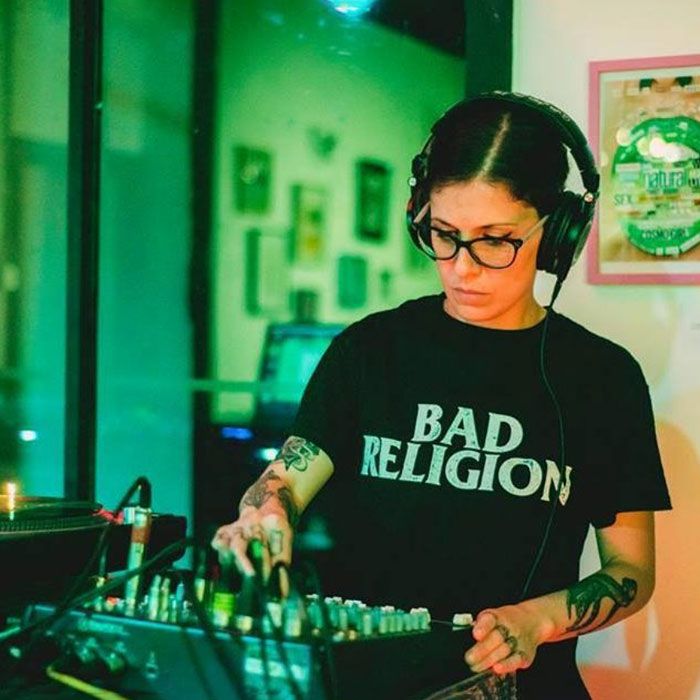Women in Pro Audio: Isabella Di Fiore Women in Pro Audio: Isabella Di Fiore...
In the bustling streets of London, where the sound of live music fills the air, one woman stands out among the crowd. Isabella Di Biase, a 42-year-old freelance live sound engineer, has carved out a space for herself in the male-dominated world of pro audio. Showcasing women like Isabella is crucial. It highlights the diverse talents and perspectives they bring to the field, inspiring future generations and challenging persistent stereotypes.
Isabella Di Biase: A Journey in Live Sound Engineering
Isabella Di Biase primarily works as an in-house tech mixing monitors at various prestigious London venues, including O2 Forum, Koko, Union Chapel, Here@Outernet, and Islington Assembly Hall. She also contributes her expertise to festivals like BST in Hyde Park and All Points East.
Originally from Italy, Isabella moved to London ten years ago. While she had a wide range of interests growing up, including poetry, literature, art, aviation, and IT, music has always been her greatest passion. Music has literally saved my life many times,” she shares. Getting into the live sound industry began in her early thirties after helping a friend run a rehearsal studio in her hometown of Ancona. It inspired her to attend a live sound course in London, marking the start of her career transition.

Overcoming Challenges
The professional audio landscape has long been a realm where men outnumber women by a significant margin. It can be an environment where female voices and talents often go unrecognized. This imbalance is not just a matter of numbers but also of deeply ingrained perceptions and biases that can make it difficult for women to gain a foothold and be taken seriously.
And Isabella’s entry into the industry was noticeably marked by challenges. “After attending the course at Scala, I started shadowing sound techs there and in small venues,” she recalls. Her early years involved working long hours, often until 6 am, to prove her reliability and skills. “The first couple of years were tough… social life, holidays, etc., were moved to the background,” she admits.
“In the live events industry, like in other male-dominated industries, there are still prejudices. Like women are less strong. Women are more emotional. They are not cut out for technical jobs. And this affects both women’s and men’s minds and attitudes.”
She continues, “Women who work in live events have to struggle twice as much as male colleagues to prove that they can do this job. I think that the automatic reflex to always need to prove ourselves affects our mental health and our ability to express our potential in the job. Many of us tend to be perfectionists and beat ourselves up if we make mistakes; sometimes, we feel more under the spotlight. Having a female worker in a team still seems something people are not used to. Some fellow techs, managers, and band members (no matter what gender) still seem surprised to see a female tech behind the desk. And it can happen that they react awkwardly, like being patronizing and competitive or overprotective and over complimenting.”
The Path Forward: Encouraging More Women in Pro Audio
Isabella believes the industry can be perceived as a difficult and competitive environment with limited opportunities for women. She highlights the lack of working rights for freelancers as another deterrent. However, she remains grateful for colleagues and managers who have supported her career. “There should be a change in the work culture. Starting from manufacturers, hiring companies, and venues.” She suggests, advocating for equal opportunities and better support for women in pro audio and individuals from diverse backgrounds.
Education and mentorship are also crucial. Isabella praises the work of Women in Live Music in the UK and Europe for organizing training and shadowing opportunities. She advises women entering the industry to “listen to a lot of music, go to concerts. And start shadowing sound techs in familiar venues.” Building a strong network, asking questions, and joining supportive organizations like Women in Live Music and unions can provide valuable support.
Moments of Pride and Future Hopes
Despite the challenges, Isabella finds immense joy in her work. “The energy and synergy produced on stage is almost addictive,” she says. Her favorite shows include mixing monitors for Mark Lanegan and Every Time I Die at Koko, The Hives at Hammersmith Apollo, and Korn’s Q&A at Union Chapel. “When I contribute to delivering a good show and the band is happy, it’s both a relief and a moment of pride.”
Looking to the future, Isabella hopes for better conditions for the freelance workforce: more equality, better work-life balance, and greater awareness about health and safety issues. The pandemic has highlighted the importance of live events and the need for adaptability and resilience in the industry.
Final Thoughts and Advice
Isabella emphasizes avoiding toxic workplaces and maintaining mutual support within teams. “If I hit a ‘technical’ challenge, I try to focus and apply my problem-solving skills,” she says. For emotional challenges, speaking up professionally and calmly is crucial. She advises women entering the industry to “train your ears to the sound of certain instruments. Start shadowing in familiar venues, and build your own workflow.” She also underscores the importance of joining supportive networks and unions.
In closing, Isabella gives a shout-out to the unsung live events workers, especially women, who make shows happen. Her journey exemplifies the resilience, passion, and dedication needed to thrive in the pro audio and live sound industry.
To follow Isabella and connect with her, visit her Instagram page.

Read last month’s Women in Pro Audio interview here.
Subscribe to Our Newsletter
Get the lastest news and find out about listening events.